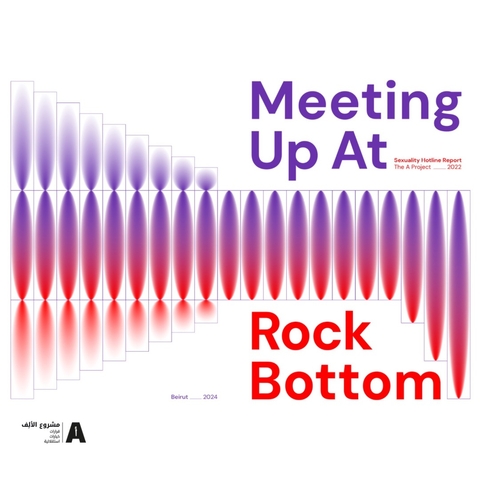Meeting Up At Rock Bottom? Sixth Sexuality Hotline Report (Jan 2022-Dec 2022)
This publication is the sixth edition of the sexuality hotline report. It carries the data collected from calls made to the sexuality hotline in 2022 through a mutual aid framework and contextualizes it within the many crises that continued to unfold in Lebanon that same year. Movement building and sexual reproductive health rights were a cornerstone for scoping the themes that emerged from the data.
To further explore mutual aid and how such work was influenced by the crises in 2022 and continues to be affected by, this report shares an analysis of a focus group discussion zooming in on the experiences and perspectives of people involved in collective and/or individual mutual aid efforts, be it within or outside of The A Project. The viewpoints, challenges, and wins shared by them offer a unique understanding of mutual aid and solidarity practices within Lebanon, and how collective and individual efforts have been affected by the ongoing crises. Moreover, they highlight the significance of kinship within community mobilization and organizing.
A total of 1,471 calls were made to the hotline between January and December 2022. The calls were mostly by people between ages 20-25, who are Lebanese, live in Beirut, and are cis women. This trend is consistent with hotline data from previous years.
Within these calls, we saw a plethora of topics explored on the hotline this year. We coded all topics into 29 major categories that illustrate the nuanced nature of each conversation that occurred. The most popular topics in 2022 included access to medication, financial difficulties, unwanted pregnancies, access to healthcare, relationships, and gender-affirming healthcare. We also explored new topics that emerged such as managing one’s own health, discovering one’s own body, and involvement in one’s own health. These topics attest to people’s consciousness towards the immensity of inaccessibility in Lebanon. By utilizing the sexuality hotline to gain closer insight into their personhood, bodies, and resources, they navigated lack of basic resources through various approaches such as Do-It-Yourself (DIY) healthcare 3 and shared experiences and resources–even if it was just to think out loud with someone about alternatives.
The report is divided into two overarching themes: movement building and sexual and reproductive health. In the first theme, we explore movement building through anti-racism and borders, gender justice, queer and trans* liberation, and universal healthcare. The sections seek to reflect how mutual aid goes hand in hand with these movements. In the second theme, we focus on abortion, sexually transmitted infections (STIs), gender-affirming care, and relationships as pillars of sexual and reproductive health and reproductive justice.
